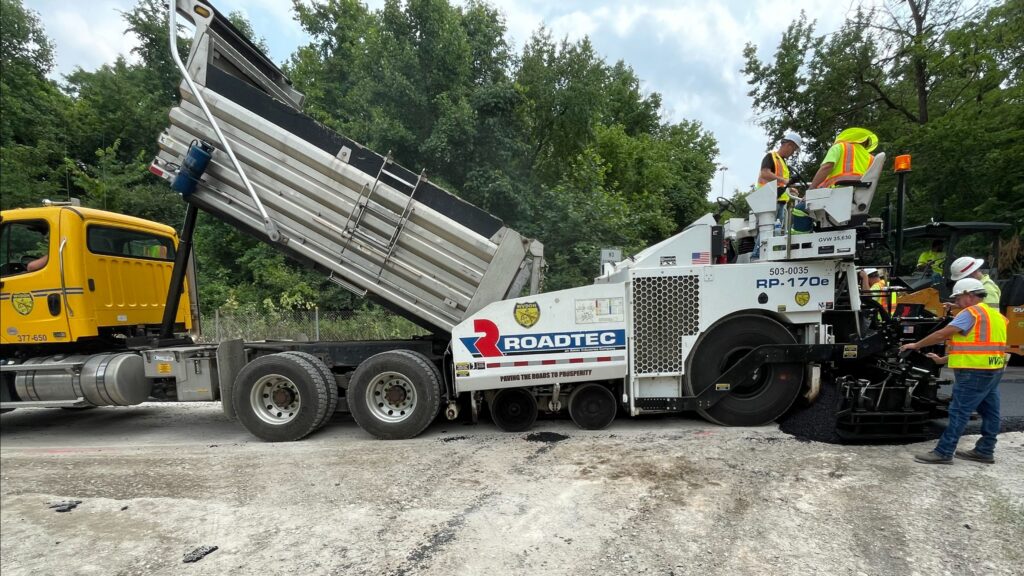The West Virginia Division of Highways (DOH) relies on state employees and contract workers when getting roads paved in its 10 districts. But thanks to an emphasis on more paver training in 2020, more work has been completed in the last couple of years by state workers — and for less money than work performed by contractors.
The DOH said in a press release that in 2022, state crews paved 349 miles of roadway, which cost $44.9 million. However, only 88 miles were paved through contract paving that year, costing the state $63.7 million.
So far, in 2023, while fewer miles have been completed by state workers than contractors, there’s still a wide difference in the cost — for 48 miles of roadway by state workers, the state spent about $7.4 million compared to 105 miles paved through contractors for $34.9 million.
For perspective, in 2022, that work equaled $128,547 per mile by state workers compared to $728,814 per mile done by contractors. In 2023, so far, the cost has been $154,354 per mile by state workers versus $333,923 per mile by contractors.
While the state saves money and sees more work completed through state workers, the DOH embraces both types of work, as more roads are paved and state employees are receiving more training to meet the needs of its 10 districts.
The DOH began paver training in 2020 after new paver machines were purchased. Forty-nine DOH employees around the state have since learned how to use the equipment.
Training is conducted by the DOH’s Equipment Operator Training Academy, factory representatives from the paver manufacturer and various maintenance assistants in the state Division of Highways.






















